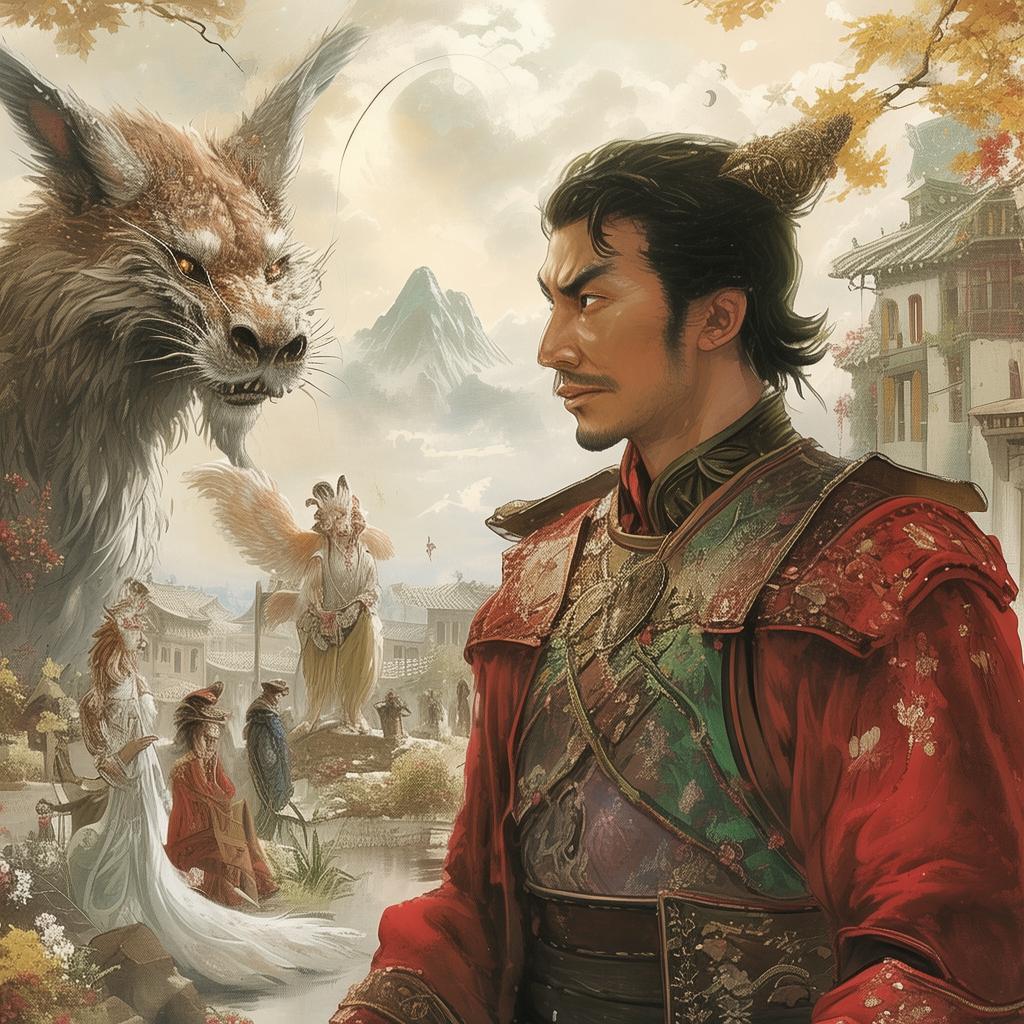The Starlit Oracle: The Six Philosophers' Quest
In the ancient kingdom of Lumina, where the sky was painted with the most vibrant hues of the night, there hung a mystery that had baffled the wise for centuries. The stars, which normally danced with celestial grace, had begun to whisper in the silence of the night, their light flickering with an eerie glow. The people of Lumina were thrown into a panic, for the stars' riddle was foretold to hold the fate of their world.
The six philosophers, each a master of their own school of thought, were summoned to the grand hall of the king. They were from different lands, each with their own beliefs and wisdom: the Rationalist, who believed in the power of reason; the Empiricist, who sought truth through observation; the Idealist, who saw the world through the lens of beauty and morality; the Skeptic, who questioned everything; the Realist, who believed in the tangible and practical; and the Mystic, who sought understanding through the divine and the unknown.
The king, a man of great foresight and wisdom, stood before them, his eyes reflecting the gravity of the situation. "The stars have spoken, and their riddle is clear," he began. "Only through the union of your knowledge can we hope to unravel this mystery and save our world from impending doom."
The Riddle of the Stars was simple yet complex: "In the sky, where light is born, what holds the key to time and space? The answer lies in the hearts of those who seek, and the truth will set them free."
Each philosopher pondered the riddle, their minds racing with possible answers. The Rationalist, with a calculating gaze, searched for logic in the stars' words. The Empiricist, with a keen eye, studied the night sky, seeking patterns in the stars' movements. The Idealist, with a dreamy expression, saw the riddle as a moral imperative, a quest for the greater good. The Skeptic, with a questioning brow, dismissed the riddle as mere superstition, but his curiosity led him to reconsider. The Realist, with a practical stance, sought to apply the riddle to the tangible world, hoping to find a solution in the realm of the known. The Mystic, with a serene smile, believed the answer lay in the realm of the divine, and that the riddle was a call to unite with the cosmos.
As they journeyed through the kingdom, their paths crossed and their minds clashed. They encountered the people of Lumina, who were desperate for hope. The philosopher's unity was tested by their differences, but each encounter brought them closer to understanding the riddle's true meaning.
One night, as they camped under the starlit sky, the Mystic pointed to the sky, where a single star shone with an unusual brilliance. "Look," he whispered, "the answer lies in the heart of that star. It is the heart of the cosmos, the source of all creation."
The Rationalist, intrigued, began to calculate the star's position, while the Empiricist observed its movement. The Idealist saw the star as a symbol of unity, a beacon of hope for the people. The Skeptic, though still skeptical, felt a strange connection to the star, as if it were calling to him. The Realist, with a practical mind, noticed the star's unique light and its relation to the riddle's words about light and time.

As the night wore on, the philosophers realized that the answer was not in the riddle itself, but in the journey they had undertaken. They had come together, despite their differences, to seek the truth. It was their unity that held the key to the riddle's answer.
The next morning, they returned to the king, their hearts filled with newfound understanding. The king, seeing the change in the philosophers, smiled warmly. "The answer has been with you all along," he said. "The key to the riddle is the unity of your minds and hearts. It is through your collaboration that the truth will be revealed."
The philosophers, now united by their shared quest, returned to the sky, where they saw the stars once again dance in harmony. They understood that the riddle was not about finding a specific answer, but about the journey itself—the journey to understanding, to unity, and to the truth that lay beyond the stars.
And so, the riddle of the stars was solved, not by a single answer, but by the collective wisdom of the six philosophers. Their story became a legend, a tale of unity and the power of collaboration. The people of Lumina, now free from the fear of the stars, lived in harmony, their hearts filled with the light of understanding and the wisdom of the philosophers.
The Starlit Oracle: The Six Philosophers' Quest, a tale of unity, the cosmos, and the power of collective wisdom, became a timeless story, passed down through generations, reminding all who heard it of the strength that lies in unity and the beauty of the celestial enigma that brought them together.
✨ Original Statement ✨
All articles published on this website (including but not limited to text, images, videos, and other content) are original or authorized for reposting and are protected by relevant laws. Without the explicit written permission of this website, no individual or organization may copy, modify, repost, or use the content for commercial purposes.
If you need to quote or cooperate, please contact this site for authorization. We reserve the right to pursue legal responsibility for any unauthorized use.
Hereby declared.








